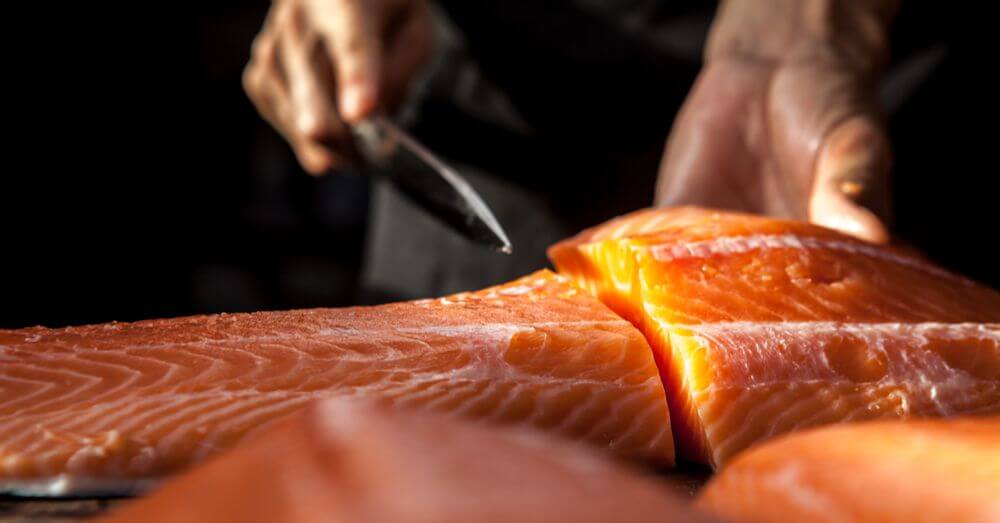
Kvarøy Arctic will soon be capable of providing detailed information on their salmon to their consumers
Kvarøy Arctic, a Norwegian-based producer of farmed salmon, is the latest entity to join the IBM’s Food Trust, the tech giant’s supply chain solution built on a blockchain for the food industry.
Kvarøy Arctic is a supplier for multiple restaurants and Whole Food retailers in Canada and the United States. It will now be using blockchain technology to provide comprehensive information on where and how its produce is grown to restaurants and customers.
When asked about the partnership, IBM Food Trust’s general manager Raj Rao said that this was a way of “promoting transparency and sustainability in the seafood supply chains.”
Corporate buyers and consumers can now scan QR codes to access information regarding the origin of the salmon farmed by Kvarøy Arctic.
Beyond descriptions, customers will soon be able to access images describing the conditions under which their salmon was produced, which includes the population and density of the habits in which the salmon were raised. They can also see their age, date of harvest and information on the supply route the products took from their source to supermarket shelves.
The salmon producer is also collaborating with BioMar, its feed supplier, to provide additional supply chain data to the project.
Kvarøy Arctic observed that over the last three months, there was a significant increase in the demand for fresh seafood in the US. The producer has revealed that they have been making shipments worth two times the anticipated volume.
Espen Braathe, IBM Food Trust representative, said that premium foods attract higher instances of fraud than other consumable products. In his words, “When there is a premium price in food, the premium for fraud grows.”
In a study conducted by the environmental nonprofit organisation Oceana, researchers found that one-third of all seafood products have been mislabeled in the US. As a result, consumers often pay premium prices for substandard produce without their knowledge.
Alf-Gøran Knutsen, CEO of the Kvarøy Arctic, believes that blockchain can help mitigate cases of fraud within the seafood industry.
“Blockchain is the future when it comes to ending fraud in the seafood industry, The technology tracks a level of detail that helps us reduce food waste so we can feed more people in the world,” Knutsen said.
The IBM Food Trust is a network of food industry professionals that are connected by a shared record of food system data. This system allows businesses to increase food safety and freshness, work on supply chain efficiencies, minimize waste, and enhance reputation.

